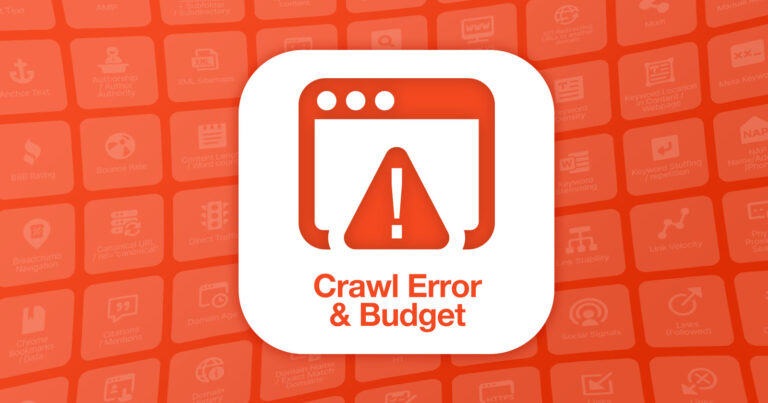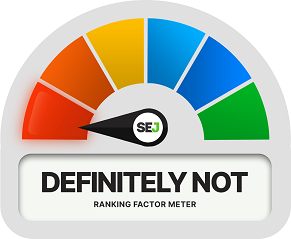
Crawling is step one in a web page’s journey to a outcomes web page.
Serps want to find your web page earlier than they rank it and resolve the place to put it within the outcomes.
Crawling the net is a resource-intensive course of. Serps like Google use lots of of billions of net pages, movies, photographs, merchandise, paperwork, books, and so on. to return question outcomes.
Due to this fact, they prioritize crawling efforts to preserve sources and cargo on the web sites they go to.
There’s a restrict to the time crawlers can spend on you.
The time Google spends crawling a website is named the website’s crawl funds.
Any technical points that interrupt Google’s capacity to crawl your web site are referred to as crawl errors.
Smaller websites are unlikely to be affected. Once you come throughout a couple of thousand URLs, it is vital to assist Googlebot acknowledge and prioritize what content material to crawl, when to allocate server sources, and the way a lot.
With that being the start line, you may be questioning: is how nicely Google can crawl my web site a rating issue?
[Deep Dive:] The Full Information to Google Rating Components
The Declare: Crawl Errors and Crawl Price range as Rating Components
Decreasing crawl errors and enhancing crawl funds are each vital focus areas of technical search engine optimization, and with good cause!
You make investments tens or lots of of hundreds of {dollars} a 12 months creating high quality content material, then click on publish and simply wait on your arduous work to point out up within the search outcomes.
The issue is, if Google does not crawl a web page due to a bug or a restricted crawl funds, the web page cannot rank for something in any respect.
For a web page to seem in Google search outcomes, it should first be crawled by Googlebot.
Due to this, some entrepreneurs think about crawl funds a rating issue.
Let’s examine if there may be any proof to help this declare.
The proof: crawl errors and crawl funds as rating elements
So as to decide whether or not crawl funds may be a rating issue, you will need to perceive how a web page will get from a website to the search engine outcomes web page (SERP).
The method entails three steps: crawling, indexing, and rating.
Learn extra in regards to the intricacies of the method in SEJ’s How Search Engines Work e-book.
Crawling Price range and Crawling Errors fall below “Crawling”; Bots observe hyperlinks to find pages.
Indexing analyzes a web page and shops it in a catalog for simple retrieval.
After a web page has been crawled and listed, it could seem in search outcomes.
The rating primarily lists essentially the most related webpage on the prime of the search outcomes, adopted by the opposite pages based mostly on how nicely Google thinks the web page is answering the question.
The rating section consists of many of the evaluation carried out by Google’s algorithms. To be thought-about a rating issue, some weight have to be given throughout the rating stage.
Whereas crawling is required for rating as soon as it’s met, this requirement shouldn’t be weighted throughout rating.
Simply in case the difficulty is not totally resolved for you:
Whether or not or not crawling is a rating issue is instantly addressed by Google within the High Questions part of the Google Search Central weblog.
Screenshot from Google Search Central, June 2022
Google’s documentation assures readers that whereas crawling is important to seem in search outcomes, it isn’t a rating issue.
[Discover:] Extra Google Rating Issue Insights
Our verdict: Crawl errors and crawl funds usually are not rating elements

Google determines rankings based mostly on many elements. Nonetheless, crawling errors and crawling budgets usually are not included.
Consider crawling because the entry level into Google’s search outcomes.
Serps should be capable to crawl your website with a purpose to index your pages. Indexing is required for rating. Nonetheless, an elevated crawl funds shouldn’t be liable for higher positions within the search outcomes.
Featured picture: Paulo Bobita/Search Engine Journal
![Ranking Factors: Fact or Fiction? Let's dispel some myths! [Ebook]](https://cdn.searchenginejournal.com/wp-content/uploads/2022/08/rf-ebook-download-banner-62e8c6126ffe8-sej.jpg)